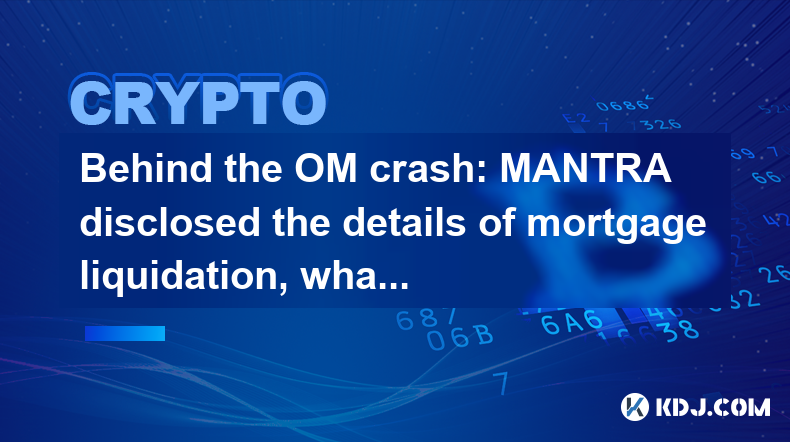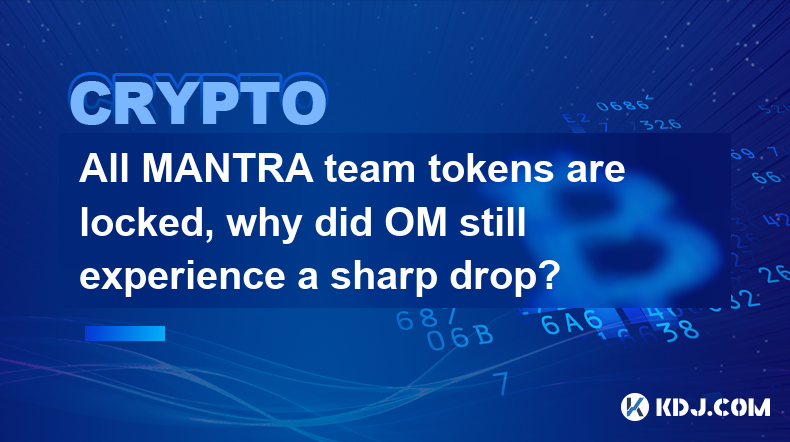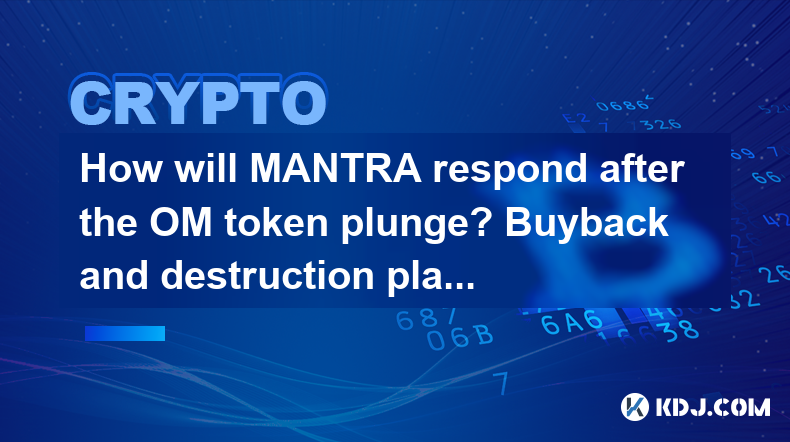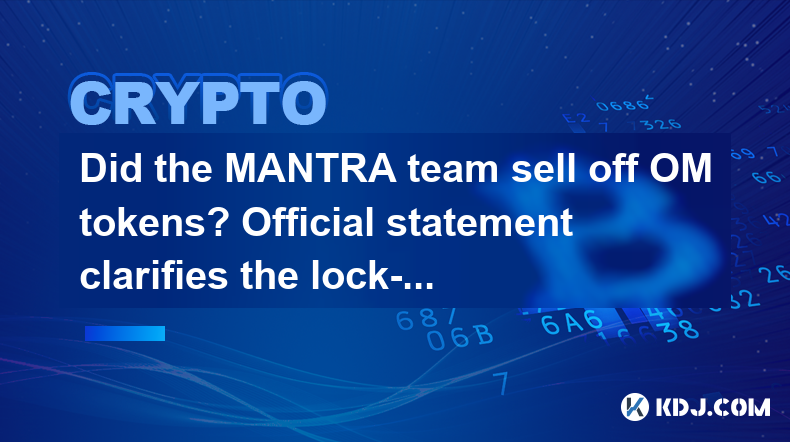-
 Bitcoin
Bitcoin $85,216.7901
0.41% -
 Ethereum
Ethereum $1,613.9019
1.13% -
 Tether USDt
Tether USDt $0.9999
0.02% -
 XRP
XRP $2.0844
0.05% -
 BNB
BNB $592.5858
0.07% -
 Solana
Solana $141.0979
2.42% -
 USDC
USDC $0.9999
0.01% -
 Dogecoin
Dogecoin $0.1582
-0.51% -
 TRON
TRON $0.2446
1.40% -
 Cardano
Cardano $0.6320
-0.25% -
 UNUS SED LEO
UNUS SED LEO $9.3167
0.79% -
 Chainlink
Chainlink $12.9497
1.71% -
 Avalanche
Avalanche $19.9159
3.30% -
 Stellar
Stellar $0.2466
1.50% -
 Toncoin
Toncoin $2.9744
-0.93% -
 Shiba Inu
Shiba Inu $0.0...01237
0.30% -
 Hedera
Hedera $0.1666
-0.58% -
 Sui
Sui $2.1546
0.57% -
 Bitcoin Cash
Bitcoin Cash $338.6747
-0.02% -
 Hyperliquid
Hyperliquid $18.4590
7.45% -
 Polkadot
Polkadot $3.8859
4.13% -
 Litecoin
Litecoin $76.2713
-0.12% -
 Bitget Token
Bitget Token $4.5825
3.39% -
 Dai
Dai $0.9999
-0.01% -
 Ethena USDe
Ethena USDe $0.9991
-0.01% -
 Pi
Pi $0.6510
0.28% -
 Monero
Monero $217.7942
1.15% -
 Uniswap
Uniswap $5.3279
1.53% -
 Pepe
Pepe $0.0...07532
2.38% -
 OKB
OKB $50.9748
1.06%
How to automatically buy and sell XRP through API?
XRP, developed by Ripple Labs, enables fast, low-cost international transfers. Traders use APIs from exchanges like Binance and Coinbase Pro to automate XRP trading strategies.
Apr 18, 2025 at 04:56 pm

Introduction to XRP and API Trading
XRP, developed by Ripple Labs, is a digital asset designed to facilitate fast and low-cost international money transfers. As the cryptocurrency market grows, many traders are turning to automated trading solutions to capitalize on market movements. One of the most efficient ways to automate trading is through the use of Application Programming Interfaces (APIs). APIs allow traders to connect their trading strategies directly to cryptocurrency exchanges, enabling automatic buying and selling of assets like XRP.
Choosing the Right Exchange and API
Before setting up an automated trading system for XRP, it's crucial to choose a reliable cryptocurrency exchange that supports XRP trading and provides a robust API. Popular exchanges like Binance, Coinbase Pro, and Kraken offer APIs that can be used for automated trading. When selecting an exchange, consider factors such as trading fees, liquidity, and the specific features of their API.
- Binance: Known for its high liquidity and a wide range of trading pairs, Binance offers a comprehensive API that supports both spot and futures trading.
- Coinbase Pro: Offers a user-friendly API with detailed documentation, making it suitable for beginners and advanced traders alike.
- Kraken: Known for its security and support for a variety of cryptocurrencies, Kraken's API is robust and well-documented.
Setting Up Your API Keys
To start using an API for automated trading, you'll need to generate API keys from your chosen exchange. Here's how to do it on Binance:
- Log in to your Binance account and navigate to the API Management page.
- Click on "Create New Key". You will be prompted to enter a label for the key and your 2FA code.
- After creating the key, you will receive an API Key and a Secret Key. Keep the Secret Key confidential and never share it with anyone.
- Enable the necessary permissions for your API key, such as trading and withdrawal permissions, based on your trading strategy.
Developing Your Trading Strategy
Once you have your API keys, the next step is to develop a trading strategy. A simple strategy for XRP might involve buying when the price drops to a certain level and selling when it reaches a predefined target. You can use programming languages like Python to implement your strategy.
Here's a basic example of a Python script using the ccxt library to buy and sell XRP on Binance:
import ccxtInitialize the exchange
exchange = ccxt.binance({
'apiKey': 'YOUR_API_KEY',
'secret': 'YOUR_SECRET_KEY',
})
Define the trading pair
symbol = 'XRP/USDT'
Set the buy and sell thresholds
buy_threshold = 0.5 # Buy XRP when the price drops to $0.5
sell_threshold = 0.6 # Sell XRP when the price reaches $0.6
while True:
# Fetch the current market price
ticker = exchange.fetch_ticker(symbol)
current_price = ticker['last']
# Check if the current price is below the buy threshold
if current_price <= buy_threshold:
# Place a buy order
order = exchange.create_market_buy_order(symbol, 100) # Buy 100 XRP
print(f"Bought XRP at {current_price}")
# Check if the current price is above the sell threshold
elif current_price >= sell_threshold:
# Place a sell order
order = exchange.create_market_sell_order(symbol, 100) # Sell 100 XRP
print(f"Sold XRP at {current_price}")
# Add a delay to prevent excessive API calls
time.sleep(60)
Implementing Risk Management
Risk management is a critical component of any trading strategy. When automating XRP trading through an API, consider implementing the following risk management techniques:
- Stop-Loss Orders: Set stop-loss orders to limit potential losses. For example, if you buy XRP at $0.5, you might set a stop-loss order at $0.45 to minimize your loss if the price drops.
- Take-Profit Orders: Similarly, set take-profit orders to lock in profits. If you buy XRP at $0.5 and expect to sell at $0.6, a take-profit order at $0.6 ensures you sell at your target price.
- Position Sizing: Determine the size of your trades based on your total capital and risk tolerance. Avoid risking too much on a single trade.
Monitoring and Adjusting Your Strategy
After setting up your automated trading system, it's important to monitor its performance and make adjustments as needed. Keep an eye on market conditions and the effectiveness of your strategy. If the market changes, you may need to adjust your buy and sell thresholds or implement new risk management techniques.
- Review your trading logs regularly to understand how your strategy is performing.
- Use backtesting to test your strategy against historical data and refine it before deploying it live.
- Stay informed about XRP news and market trends, as they can impact the effectiveness of your trading strategy.
FAQs
Q: Can I use the same API key for multiple trading strategies?
A: While it's technically possible to use the same API key for multiple strategies, it's generally not recommended. Using separate API keys for different strategies can help you manage permissions and security more effectively. If one strategy is compromised, it won't affect the others.
Q: How can I protect my API keys from being stolen?
A: To protect your API keys, never share them with anyone, use strong passwords and 2FA on your exchange account, and consider using API key management tools that allow you to rotate keys regularly. Additionally, limit the permissions of your API keys to only what is necessary for your trading strategy.
Q: Are there any costs associated with using an API for trading?
A: Yes, using an API for trading can incur costs. Exchanges may charge API fees for high-frequency trading, and there may be transaction fees associated with buying and selling XRP. Always review the fee structure of your chosen exchange before setting up automated trading.
Q: Can I automate trading on multiple exchanges simultaneously?
A: Yes, you can automate trading on multiple exchanges using their respective APIs. However, this requires more complex programming to manage different API endpoints and handle potential discrepancies in order execution times and fees across exchanges.
Disclaimer:info@kdj.com
The information provided is not trading advice. kdj.com does not assume any responsibility for any investments made based on the information provided in this article. Cryptocurrencies are highly volatile and it is highly recommended that you invest with caution after thorough research!
If you believe that the content used on this website infringes your copyright, please contact us immediately (info@kdj.com) and we will delete it promptly.
- 3 Cryptocurrencies Promise to Make You a Millionaire by 2025
- 2025-04-20 11:55:12
- In Its Recent Network Updates, an Ethereum (ETH) Core Developer Has Highlighted Five Key Projects the Blockchain
- 2025-04-20 11:55:12
- TON (BTC) Breakout Presents Opportunity to Explore Long Positions
- 2025-04-20 11:50:13
- Ethereum (ETH) Core Developers Highlight 5 Key Projects the Blockchain Is Working on
- 2025-04-20 11:50:13
- MAGACOIN FINANCE: THE NEW ROI DARLING?
- 2025-04-20 11:45:13
- Rich Dad Poor Dad author Robert Kiyosaki recently predicted that Bitcoin will surpass the price of USD 1 million by 2035.
- 2025-04-20 11:45:13
Related knowledge

Behind the OM crash: MANTRA disclosed the details of mortgage liquidation, what measures will be taken in the future?
Apr 20,2025 at 05:49am
The recent crash of the OM token has sent shockwaves through the cryptocurrency community, prompting MANTRA, the platform behind OM, to disclose detailed insights into the mortgage liquidation that led to this event. In this article, we will delve into the specifics of what happened, the mechanisms of mortgage liquidation, and the measures MANTRA plans ...

All MANTRA team tokens are locked, why did OM still experience a sharp drop?
Apr 20,2025 at 11:14am
Introduction to MANTRA and OM TokenThe MANTRA project is a blockchain platform that aims to provide a scalable and secure environment for decentralized applications (dApps). The native token of the MANTRA ecosystem is OM, which plays a crucial role in governance, staking, and other functionalities within the platform. Recently, the MANTRA team announced...

How will MANTRA respond after the OM token plunge? Buyback and destruction plan revealed
Apr 19,2025 at 11:42pm
The recent plunge in the OM token price has left many investors and enthusiasts of the MANTRA ecosystem concerned about the future stability and value of their holdings. In response to these market fluctuations, MANTRA has announced a comprehensive buyback and destruction plan aimed at restoring confidence and supporting the long-term health of the OM t...

Did the MANTRA team sell off OM tokens? Official statement clarifies the lock-up situation
Apr 19,2025 at 10:56pm
The recent buzz around the MANTRA project and its native token, OM, has led to speculation and concerns within the cryptocurrency community about whether the MANTRA team has sold off their OM tokens. To address these concerns and clarify the situation, the MANTRA team has released an official statement detailing the lock-up situation of their tokens. Th...

What caused the OM crash? MANTRA officially responded to the forced liquidation incident
Apr 20,2025 at 09:35am
The recent crash of OM, the native token of the MANTRA DAO ecosystem, has sent ripples through the cryptocurrency community, leaving many investors and users seeking answers. In this article, we delve into the details of the OM crash, exploring the events leading up to it and the official response from MANTRA DAO. We aim to provide a comprehensive under...

How do Bitcoin payment platforms comply with Anti-Money Laundering (AML) regulations?
Apr 20,2025 at 07:15am
Bitcoin payment platforms operate at the intersection of cryptocurrency and traditional finance, necessitating strict adherence to Anti-Money Laundering (AML) regulations. Compliance with these regulations is crucial to prevent the misuse of digital currencies for illicit activities such as money laundering and terrorist financing. This article explores...

Behind the OM crash: MANTRA disclosed the details of mortgage liquidation, what measures will be taken in the future?
Apr 20,2025 at 05:49am
The recent crash of the OM token has sent shockwaves through the cryptocurrency community, prompting MANTRA, the platform behind OM, to disclose detailed insights into the mortgage liquidation that led to this event. In this article, we will delve into the specifics of what happened, the mechanisms of mortgage liquidation, and the measures MANTRA plans ...

All MANTRA team tokens are locked, why did OM still experience a sharp drop?
Apr 20,2025 at 11:14am
Introduction to MANTRA and OM TokenThe MANTRA project is a blockchain platform that aims to provide a scalable and secure environment for decentralized applications (dApps). The native token of the MANTRA ecosystem is OM, which plays a crucial role in governance, staking, and other functionalities within the platform. Recently, the MANTRA team announced...

How will MANTRA respond after the OM token plunge? Buyback and destruction plan revealed
Apr 19,2025 at 11:42pm
The recent plunge in the OM token price has left many investors and enthusiasts of the MANTRA ecosystem concerned about the future stability and value of their holdings. In response to these market fluctuations, MANTRA has announced a comprehensive buyback and destruction plan aimed at restoring confidence and supporting the long-term health of the OM t...

Did the MANTRA team sell off OM tokens? Official statement clarifies the lock-up situation
Apr 19,2025 at 10:56pm
The recent buzz around the MANTRA project and its native token, OM, has led to speculation and concerns within the cryptocurrency community about whether the MANTRA team has sold off their OM tokens. To address these concerns and clarify the situation, the MANTRA team has released an official statement detailing the lock-up situation of their tokens. Th...

What caused the OM crash? MANTRA officially responded to the forced liquidation incident
Apr 20,2025 at 09:35am
The recent crash of OM, the native token of the MANTRA DAO ecosystem, has sent ripples through the cryptocurrency community, leaving many investors and users seeking answers. In this article, we delve into the details of the OM crash, exploring the events leading up to it and the official response from MANTRA DAO. We aim to provide a comprehensive under...

How do Bitcoin payment platforms comply with Anti-Money Laundering (AML) regulations?
Apr 20,2025 at 07:15am
Bitcoin payment platforms operate at the intersection of cryptocurrency and traditional finance, necessitating strict adherence to Anti-Money Laundering (AML) regulations. Compliance with these regulations is crucial to prevent the misuse of digital currencies for illicit activities such as money laundering and terrorist financing. This article explores...
See all articles























































































